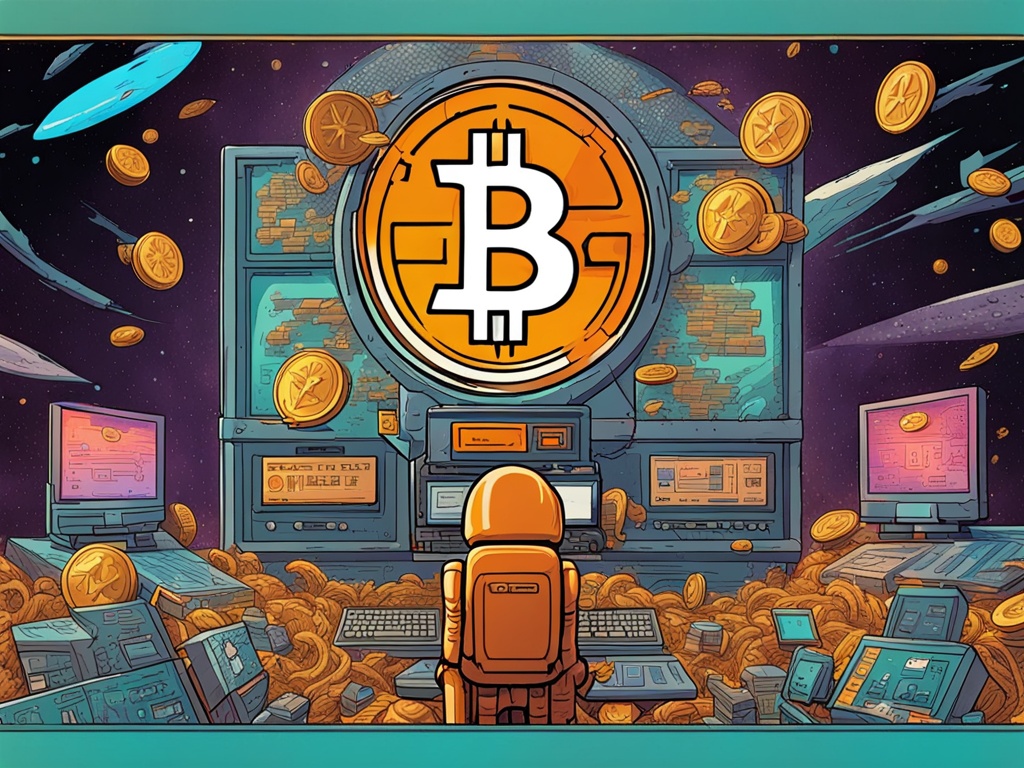What Could the New Broker Reporting Rule Mean for the Future of DeFi?
Imagine you’re at a lively dinner party, and someone announces that the rules for games have changed—radically! Suddenly, half of those engaging in the fun find themselves on the sidelines. Frustrating, right? Well, that’s pretty much what’s happening in the crypto world with the U.S. Treasury and IRS’s newly minted broker reporting rule. Let’s dive into what this means for the decentralized finance (DeFi) landscape and why it’s got so many industry leaders riled up.
Key Takeaways
- Regulatory Pushback: Strong opposition from A16z Crypto and other DeFi advocates against the broker reporting rule.
- Impact on Innovation: Concerns that this rule could stifle DeFi development in the U.S. and push operations abroad.
- Community Response: Swift legal action from crypto organizations, showcasing a united front against regulatory overreach.
- The Broader Implication: The potential for increased paperwork and restrictions impacting everyday crypto users.
The Rushed Rule and Its Fallout
It’s been said that the decision-making process can often be more critical than the decisions themselves, and in this case, Michele Korver of A16z Crypto is making waves. After the Treasury unveiled its broker reporting rule, she quickly pointed out that it’s harmful to the DeFi sector, claiming it risks pushing innovation away from U.S. shores. In a heartfelt tweet, she spoke about the short-sightedness of these regulations, which seem more like a "midnight" decision made in haste rather than carefully thought out policy.
Now, what’s the crux of the issue? Well, the rule itself expands the definition of a "broker" in a way that could include the front-ends of decentralized trading platforms. This paints a complex picture—these platforms merely allow users to interact with decentralized networks, and imposing broker-like regulations seems a stretch to many industry insiders.
What’s the Big Deal?
- Innovation at Risk: Korver argues that this could jeopardize the very essence of DeFi, which prides itself on providing accessible financial services without centralized control.
- Overreach Concerns: Comments from leaders like Jake Chervinsky echo worries that the new regulations could go too far and create more bureaucracy than the IRS can handle.
The Crypto Community’s Response
In the face of uncertainty, the crypto community has rallied quickly—talk about a speedy reaction! Within a day, there was already talk of legal actions from organizations like the Blockchain Association and the DeFi Education Fund. That’s a huge statement about their commitment to fighting what they see as unnecessary regulation. Can you feel the tension in the air?
When you hear prominent figures like Uniswap’s Hayden Adams criticize the timing of this rule as a "deliberate attempt to hinder DeFi innovation," it makes you think. The suggestion here isn’t just about one rule—it’s about a broader narrative. Are traditional financial systems afraid of the competition that DeFi represents?
Other key figures are joining in; Katherine Minarik pointed out that the new classifications contradict Congress’s original intentions and might even result in a tidal wave of paperwork. We’re talking potential chaos here!
Why It Matters
The implications of all this aren’t just for the big dogs in the crypto space. Everyday folks like you and me could see our transaction processes become more cumbersome. If the IRS is watching our every move, will we lose the very essence of what makes DeFi attractive—privacy and accessibility?
Making Sense of All This
So, what’s the bottom line for someone who’s thinking about jumping into the crypto market? Here are some practical tips:
- Stay Informed: Keep an eye on the developments surrounding these regulations. The crypto landscape is one that changes rapidly, and what’s true today may not hold tomorrow.
- Weigh Your Options: If decentralized platforms might face tighter regulations, consider diversifying your investment to include crypto assets that aren’t impacted heavily by these rules.
- Engage with the Community: Join forums or discussions where similar-minded investors are sharing insights and tips—it’s a great way to stay ahead of the curve.
My Personal Insights
Feeling the pulse of the crypto market these days, it’s clear we are at a pivotal moment. The pushback against these regulations isn’t just defensive; it’s also an invitation for the community to unite and advocate for a framework that fosters innovation without stifling it. I genuinely believe that we are witnessing the emergence of a more robust policy infrastructure that will not only react but actively shape the future of finance.
The truth is, innovation doesn’t wait for rules to catch up. And as more voices join in opposition, I can’t help but be hopeful. After all, the very fabric of DeFi is built on resilience.
Final Thoughts
So, here’s my parting thought for you: If regulations are like a new set of rules for a game, how will you play? Embrace the changes, adapt, and remember the spirit of innovation that lies at the heart of crypto. How does this shift your view on engaging with the DeFi space?





 By
By
 By
By
 By
By
 By
By
 By
By